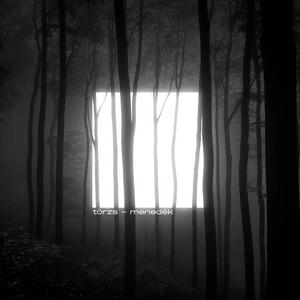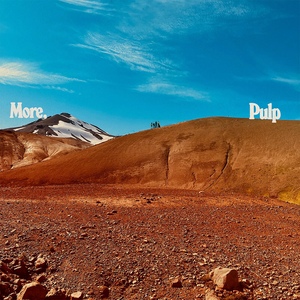Album review overview: Lil Wayne, Pulp and more
Dozens of new albums arrive at Maxazine’s editorial staff every week. There are too many to listen to, let alone review them. It ensures that too many albums are left behind. And that’s a shame. That is why today we post an overview of albums that arrive at the editors in short reviews.
Törzs – Menedék
Törzs is a post-rock band from Hungary. “Menedék” is the fourth album by this trio. With their experimental rock, they create complex, instrumental tracks to which they add shoegaze elements. The calm intro of “Egy pillanatban a végtelen” (‘Infinity in a moment’) is intriguing. The same applies to what follows. Most changes in tempo and volume progress gradually, and the composition is captivating. You can feel the emotion with which it’s played, I’m regularly moved by their music. This happens not only in the soberly played parts, but also in the forte (i.e., loud) played sections. Törzs maintains this throughout the entire album. There are beautiful interactions between very restrained/minimalistic music and rock-metal and/or intensely played parts. It’s always surprising how a track continues. Occasionally, a track seems to end, but then it turns out to be a twist. Each track has a beautiful ending, but there could have been more variation in the way the tracks end. The balance and alternation between instruments is excellent. “Menedék” is an album to enjoy in complete tranquillity. (Esther Kessel-Tamerus) (8/10) (Pelagic Records)
Elijah Jeffery and Eddie Gripper
A piano and a voice: that’s all you need to make a good album. Especially not when the voice belongs to Elijah Jeffery: a man blessed with velvet vocal cords that readily reveal that his training was focused on theatres. Together with Gripper’s classical, melodious accompaniment, this results in an album that takes only half an hour, but leaves you with the feeling of having listened to something special. It’s pure, without post-production tinkering in a studio with overdubs or effects. It’s as if you’ve taken a seat next to Gripper’s grand piano, where you can marvel at Jeffery’s range in, for example, the gallant “Close Your Eyes.” That might be the best tip: close your eyes and listen. Listen to the restrained “Because of You” and the more pointed “True Love Never Dies.” Let yourself be carried away by the arrangement of Henri Purcell’s “Dido’s Lament” (“When I Am Laid in Earth”). It’s the dramatic climax and finale in the opera “Dido and Aeneas”: a fiercely complex melody that Jeffery masterfully interprets, emotional and narrative, as Purcell must have intended the piece. Say with us afterwards: a good pianist and an excellent singer. A person needs nothing more to find happiness in music. (Jeroen Mulder) (8/10) (Elijah Jeffery and Eddie Gripper)
Lil Wayne – Tha Carter VI
After seven years of silence, Lil Wayne returns with “Tha Carter VI,” an album that showcases his boundless creativity but simultaneously proves to be his weakest Carter instalment. The 67-minute record contains 19 tracks full of surprising collaborations. From the unfortunately still unavoidable Bono on “The Days” to opera singer Andrea Bocelli on “Maria,” but it lacks the cohesion that made earlier parts so powerful. Wayne’s lyrical sharpness remains undiminished, especially on highlights like “Welcome to Tha Carter” and “Written History.” The veteran rapper continues to prove himself a master of wordplay and flow variations. Unfortunately, poor production choices and misguided rock experiments, such as “Island Holiday,” significantly undermine the whole. The album strategy feels fragmented – designed for the streaming generation but without a clear vision. Guest appearances by his sons add little, while collaborations with artists like BigXthaPlug do convince. Despite individual strong moments, Wayne fails to match the cultural impact of “Tha Carter III.” The album proves his lasting influence, but it feels like a missed opportunity. (Elodie Renard) (6/10) (Young Money Records)
Pulp – More
After 24 years of silence, Pulp returns with “More,” and what a comeback. Jarvis Cocker and his Sheffield companions prove that older rock stars can still make relevant music without falling into nostalgia. The album starts strong with “Spike Island,” in which Cocker questions his role as a performer while confessing: ‘I was born to perform, it’s a calling.’ James Ford’s production gives the band a contemporary gloss without losing their theatrical DNA. “Got to Have Love,” originally from 1999 but now completed, shows Pulp at their best: disco-funk with strings and Cocker’s characteristic wordplay. The real highlight is “Grown Ups,” in which the singer sings: ‘I am not ageing/No, I am just ripening.’ The track perfectly captures how Pulp deals with adulthood – not with bitterness, but with wisdom and humour. “Hymn of the North” functions as a love letter to Sheffield and the working people, proof that the band hasn’t forgotten their roots. Although the second half becomes somewhat slow with introspective ballads, the quality remains high. Producer Ford provides warm arrangements with strings from the Elysian Collective, while guest musicians from Cocker’s JARV IS… project enrich the sound. The album is dedicated to deceased bassist Steve Mackey, whose presence remains palpable. “More” avoids all the pitfalls of reunion albums. Instead of copying their ’90s successes, Pulp delivers an honest reflection on aging, creativity, and mortality. It’s authentic art from a mature band that still has something to say. (Jan Vranken) (8/10) (Rough Trade)
Curtis Nowosad – I Am Doing My Best
The biggest surprise on this new record by composer and drummer Curtis Nowosad is Zimbabwean singer Joanna Majoko, whom we first hear in the second piece, “Choices (A Butterfly Breaks Free).” Her voice takes you into another world; like the butterfly she sings about, she flutters over the music, expressive and at the same time very vulnerable. This also ensures that you can’t put a clear label on this album. Nowosad makes his music sound in several pieces as if we’re going back to the seventies and eighties, with clear fusion influences from, for example, Return To Forever and Mahavishnu Orchestra. In those pieces, funk predominates, as in “Echo Delta,” including guitar work that wouldn’t have been out of place on a Santana album. Thus, Nowosad alternates beautiful ballads with that enchanting voice of Majoko with irresistible groove and swing in pieces like “No Such Place As Away,” in which the drummer naturally plays a leading role alongside guitarist Andrew Renfroe. This is the first album with exclusively original compositions by Nowosad. And as far as we’re concerned, the New York drummer should keep on writing. The result is, namely, a sublime little record that navigates like a true time journey between retro-fusion and modern jazz with a Zimbabwean angel as a seductive siren. (Jeroen Mulder) (9/10) (La Reserve Records)










